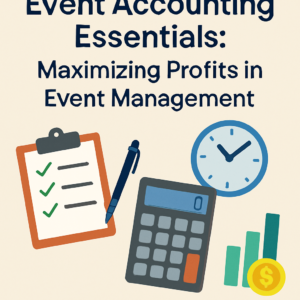Table of Contents
Managing the finances of a small business can be a daunting task, particularly when faced with challenges like cash flow issues and tight profit margins. These financial hurdles can hinder growth and stability. To navigate these complexities, small business owners must adopt sound financial practices. In this blog, we will explore essential financial tips for small business owners, aimed at enhancing cash flow, improving budgeting strategies, and ultimately achieving long-term success. By implementing these financial tips for small business owners, you can create a strong financial foundation for your business.
Create and Stick to a Budget
A budget is essential for tracking your small business’s income, expenses, and profit margins. Here are some key financial tips for small business owners to create a budget:
- Start by listing all sources of income and categorize your expenses into fixed and variable costs.
- Next, project your income and expenses for the upcoming months based on historical data and market trends.
- Prioritize critical expenses, such as rent, utilities, and payroll, to ensure they are always covered.
- To create an effective budget, use a spreadsheet or budgeting software to organize and analyze your financial data.
- Break down your expenses by category to identify areas where you can cut costs or reallocate funds.
- Set realistic financial goals, such as increasing revenue by a certain percentage or reducing unnecessary expenses.
This ongoing process will help you maintain control over your finances and make informed decisions to support your business’s growth and profitability.
Monitor and Manage Cash Flow
Cash flow is the lifeblood of any small business, directly impacting its day-to-day operations and overall financial health. Effective cash flow management ensures you have enough funds to cover essential expenses, such as payroll, rent, and utilities. One of the most vital financial tips for small business owners is to offer early payment discounts to customers, incentivizing them to pay invoices sooner. Additionally, closely monitor your accounts receivable to follow up on overdue invoices promptly.
Control your expenses by regularly reviewing and prioritizing them to identify and eliminate unnecessary costs. Implementing strict payment terms with suppliers can also help balance outgoing cash flow. It’s equally crucial to maintain a cash reserve for emergencies, providing a financial cushion to navigate unexpected expenses or downturns in revenue. This proactive approach helps ensure your small business remains resilient and capable of sustaining operations even during challenging times.
Separate Personal and Business Finances
One of the essential financial tips for small business owners is to maintain clear boundaries between personal and business finances. Mixing the two can lead to confusion, inaccurate financial records, and complications during tax filing. To keep everything organized, start by setting up dedicated business bank accounts and credit cards. This allows you to track business-related income and expenses separately from personal transactions, ensuring accurate bookkeeping. Additionally, use a reliable bookkeeping system to record all financial transactions.
Whether you opt for accounting software or outsource a professional bookkeeper, having a structured system will make it easier to monitor your business’s financial health. Consistently recording and categorizing transactions helps you avoid errors and provides a clear picture of your business’s performance.
Invest in Accounting Software
Investing in accounting software is one of the most valuable financial tips for small business owners. Automation reduces manual data entry errors and saves time, allowing you to focus on growing your business.
Popular accounting tools such as QuickBooks, Xero, and FreshBooks are designed with small businesses in mind, providing user-friendly interfaces and robust features. These platforms can generate financial reports, helping you keep a real-time pulse on your business’s financial health.
With accurate financial data at your fingertips, you can make more informed decisions, from budgeting to strategic planning. Additionally, accounting software often includes features like tax preparation and compliance tools, which can simplify the often-daunting task of tax filing. The initial investment in these tools pays off through improved financial management and operational efficiency, making them an indispensable asset for any small business.
Plan for Taxes Early
Tax planning is another crucial aspect of financial tips for small business owners. Understanding your tax obligations is essential, whether it’s income tax, self-employment tax, or payroll taxes. Start by setting aside a portion of your income each month specifically for taxes. This proactive approach can prevent financial strain when payments are due. Keep meticulous records of deductible expenses, such as office supplies, travel costs, and business-related meals, to reduce your taxable income. Familiarize yourself with tax deadlines and filing requirements to ensure compliance and avoid penalties.
Additionally, consulting with a tax professional can provide personalized advice tailored to your business’s unique needs. They can help you navigate complex tax laws, identify potential deductions, and strategize for future tax liabilities. Regularly updating your tax planning strategies in line with your business growth and changes in tax laws will ensure you remain well-prepared and compliant, ultimately safeguarding your business’s financial health.
Control Costs and Optimize Spending
Controlling expenses is key to maintaining profitability. As part of the financial tips for small business owners, regularly reviewing your subscriptions and vendor contracts can help identify unnecessary expenses or opportunities for cost savings. Start by reviewing all subscriptions and recurring expenses to identify services you no longer need or can find at a better rate. Negotiating vendor contracts can also lead to significant savings—don’t hesitate to ask for discounts or more favorable terms.
Make data-driven decisions by regularly analyzing financial reports and identifying trends in spending and revenue. This enables you to allocate resources more effectively and avoid unnecessary expenses. Smart financial decisions rooted in a thorough understanding of ROI will not only help you control costs but also position your business for sustainable growth and success.
Seek Professional Financial Advice
Lastly, seeking expert advice is one of the best financial tips for small business owners. These professionals bring specialized knowledge that can help navigate intricate financial landscapes and optimize financial health.
Accountant: Engaging with an accountant is beneficial for accurate tax filing, compliance with regulatory requirements, and strategic tax planning.
Bookkeepers: Bookkeepers ensure that daily financial transactions are recorded accurately, providing a clear and up-to-date picture of your business’s financial status.
Financial Advisors: Financial advisors offer insights into investment opportunities, risk management, and long-term financial planning.
Their expertise can guide you in making informed decisions that align with your business goals. During times of significant change, such as expanding operations or restructuring, expert advice can help mitigate risks and identify opportunities for cost savings and growth. Financial professionals not only provide critical insights but also free up your time, allowing you to focus on running and growing your business effectively.
Conclusion
By adopting these financial tips for small business owners, you can build a solid foundation for long-term success. Implementing a robust budget, managing cash flow effectively, and keeping personal and business finances separate are just the beginning. Leveraging accounting software and planning for taxes throughout the year further ensures that your business remains financially healthy and compliant.
Start integrating these financial strategies into your daily operations to see immediate improvements in your financial management. For personalized guidance tailored to your business’s unique needs, consider scheduling a consultation with a financial expert. Alternatively, you can download our comprehensive financial management guide to get started on the path to financial success.









